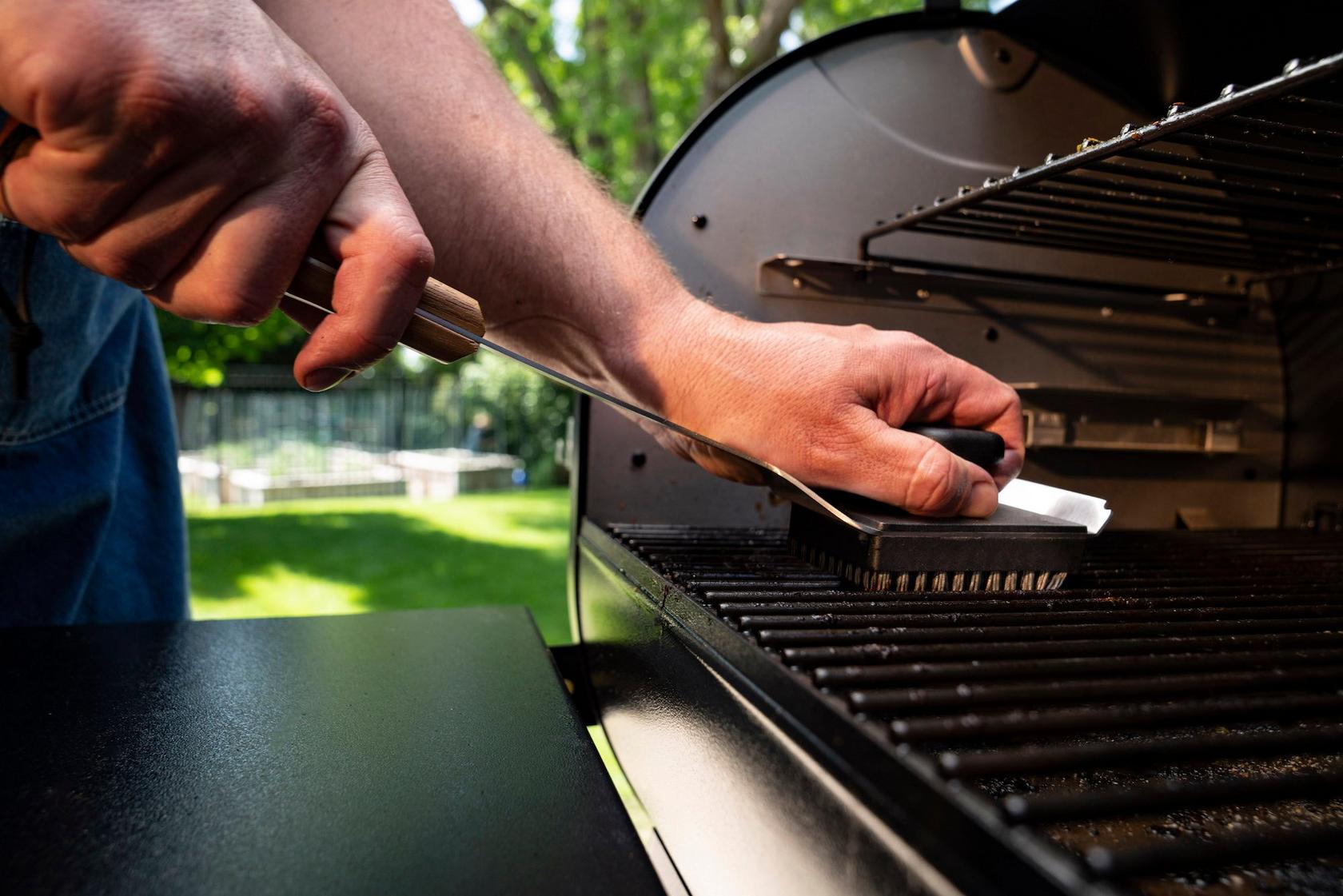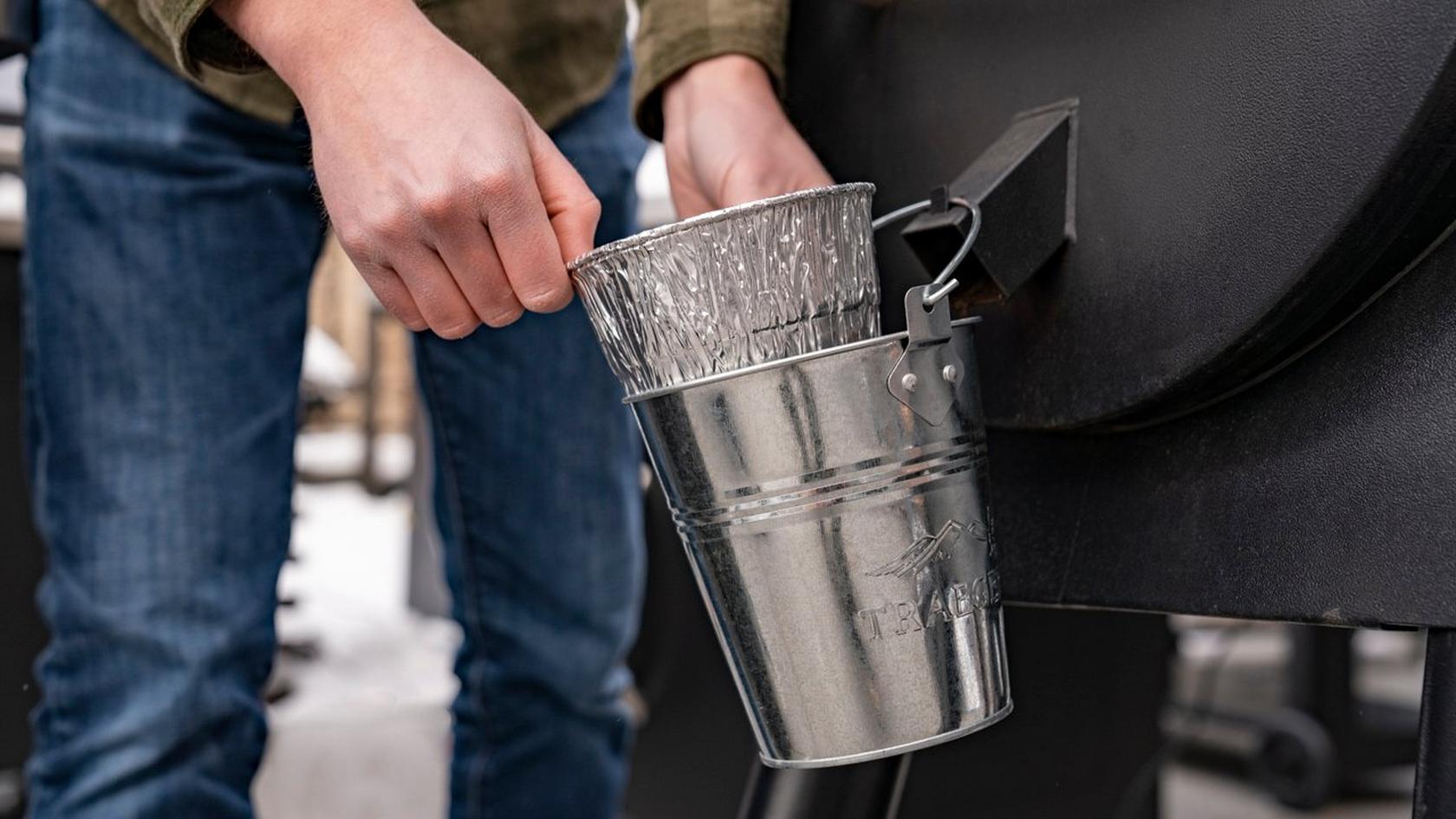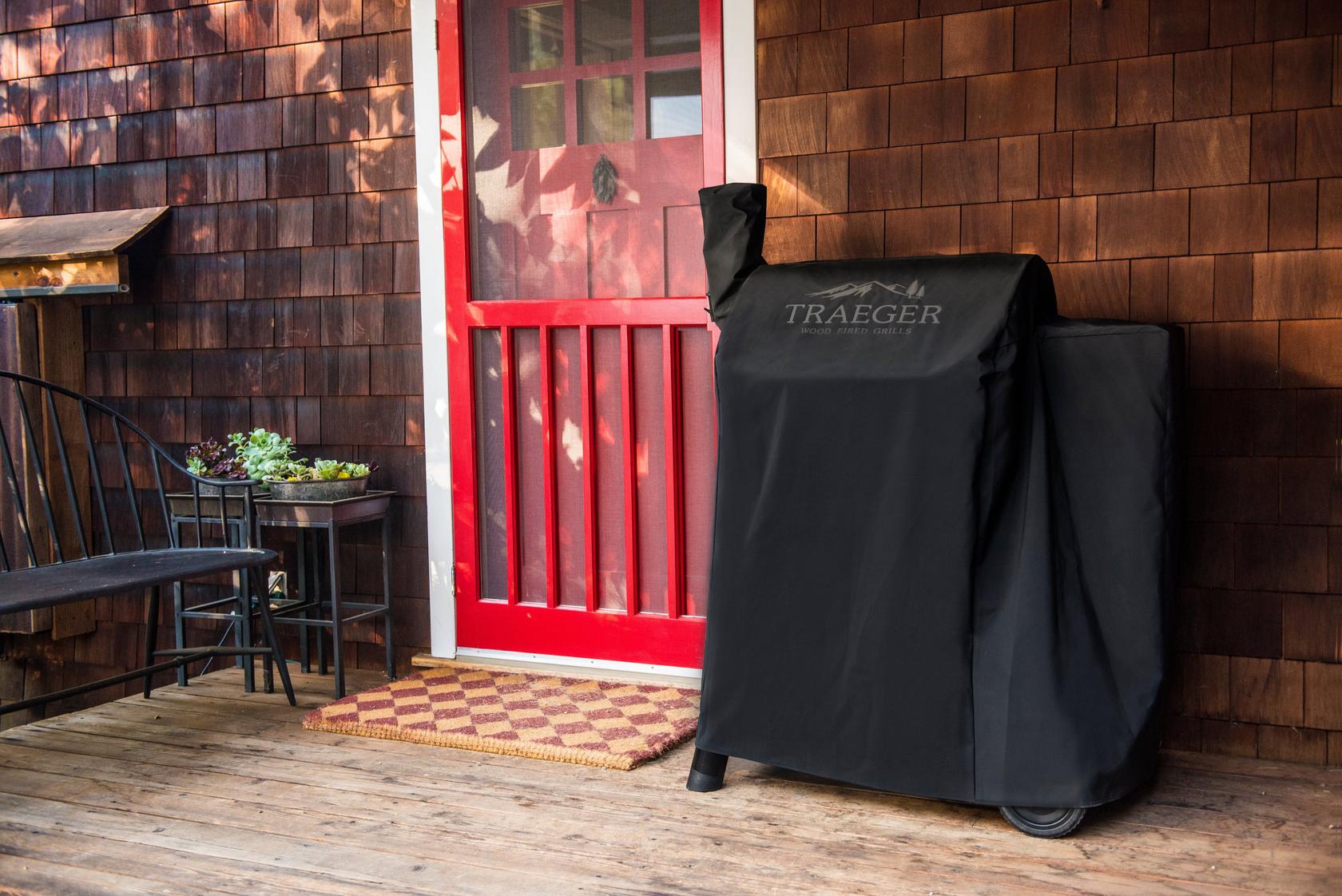
When you first get a grill, you may only think of all the delicious dishes you’ll prepare with it. However, there’s another vital aspect of grill ownership to consider right away: maintenance. Keeping your grill cared for will help it last a long time and help prevent rust on grill grates.
To get all the years you can from your grill, prioritize rust prevention as part of your regular maintenance plan.
Regular Cleaning and Maintenance
Rust is easier to prevent than it is to remove or even fix. Traeger grills are made with powder-coating on the grill grates designed to prevent rust. Just be sure to season the grill when you first get it (an easy task of heating it as directed in your user manual), it's always a good practice to keep the grates clean. Fortunately, grills don't need expensive products or complicated cleaning routines to remain rust-free. A little care and attention every time you use your grill will help prevent rust on grill grates.
Clean and Dry The Grill
Cleaning a grill is easiest if you keep up with it. Every time you use your grill, you should clean any debris from the grill grates, taking proper care to scrape any food residue off. (This is easiest to do while the grill is still hot.) A wood grill scraper is the perfect tool for this. Or try this hack: Take half of an onion or lemon and rub it along the grill grates; their acidity can loosen stuck-on messes. You can also try dipping the onion or lemon in a little coarse salt to give it a more abrasive surface. Rub until the food particles have all come off.
For a post-cook deep cleaning, wait until the grill has cooled completely. Then spray the grill grates with cleaner (we're partial to our amazingly strong natural cleaner) and scrub with a nylon-bristle brush.
Avoid using a wire brush as the bristles can break off and may get into the food, which can be dangerous. If you don’t have a brush, heavy-duty paper towels or a disposable cloth works well, too. Rub away any moisture with a paper towel or cloth before closing the lid on your grill.
The outside of the grill should be wiped down of any debris, food, or grease, as well.
Remove Excess Grease And Food Particles
In addition to removing food and grease from the grates after every use, it's important to clean the metal grease tray or drip tray that catches all the food pieces, grease, and oil from your food. Note that with our older grills some rust on this grate is normal and also harmless as it never comes into direct contact with the food. It's only an issue if there is a hole where it has rusted completely through in which case a new replacement grill tray is in order, which you can order here. On most grills, you can also line the drip tray with a disposable foil liner, which protects it.
Regardless of whether some rust is inevitable, you should clean the drip tray at least twice a year, and more often depending on how often you use your grill.
The amount of grease you accumulate also depends on the food. For example, grilling fatty steaks directly on the grill grate will create much more grease than cooking vegetables or using a pan.
Though it's not prone to rusting, it's also a good idea to regularly clean the grease bucket or keg. If you use liners in your grease bucket or keg, you can simply remove them and toss them after they accumulate grease. Otherwise, once the grill has cooled completely, scrape the grease out of the bucket to and clean well.

Be sure to wipe away any grease or food from inside and outside of the grill. Avoid using abrasive cloths or cleaners, as well as products that aren’t food-safe or approved for use for your brand and type of grill. Some products may be marketed as safe for grills but can actually harm the surface of your grill grates or electrical components.
Always unplug your grill before cleaning or removing parts for cleaning.
Deep Clean Occasionally
Every few uses, you'll need to take some additional care to do a deeper cleaning. Wood pellet grills have a grease pan that needs to be cleaned out before it gets full. If you line it with foil, this job is much easier. Suck up any ash build-up from the pellets with a wet/dry vacuum or shop vacuum.
Clean the heat baffle, drip tray, bucket liner, and grill grates thoroughly during this deeper cleaning. Avoid cleaning the thermocouple or Resistance Temperature Detector (RTD) unless you see a build-up that needs to be removed.
You can clean the outside of your grill with a non-abrasive cleaner and soft cloth, and you can apply car wax to help preserve the finish and shine.
Read our expert cleaning guide for steps on how to prevent rust on grill grates, and other messy areas.
Using Rust-Preventive Products
Your mileage will vary when using products made specifically for rust prevention. Traeger grills are made with powder-coating on the grill grates and are designed to prevent rust. You’ll just need to commit to proper seasoning, cleaning, and storage out of moist environments. Be sure to read the warranty and care instructions for your grill before applying any products designed to prevent rust. Any coating should be safe to use around foods and withstand high temperatures.
At a minimum, you can add oil to the grill grates after cleaning and drying them. The oil will keep your grill grates seasoned, discouraging food from sticking and keeping the oxygen that causes rust away from the metal. This is especially important if you notice the powder coating on your grill grates wearing away or in places where they may have become chipped or nicked.
Types Of Rust-Preventative Products
The best rust-preventative product is elbow grease (regular cleaning). After thoroughly cleaning grates, rubbing vegetable or canola oil on your grates will also deter rust. Check the owner’s manual or warranty for your grill before using any commercially available product that promises to keep rest away.
How To Apply Products
If you keep your grill well-maintained, the only products you’ll need are the following:
- Vegetable oil for seasoning the grates and to rub on after cleaning
- Traeger all-natural cleaner for getting tough grease spots and food splatters from other areas of the grill
- Lemon or onion for cleaning the grill grates if you don't have a cleaner or to prevent food build-up
Follow the directions for any cleaner you use, keeping in mind the recommendations found in your grill owner’s manual and warranty coverage.
Protecting Your Grill from the Elements
Food isn't the only thing that can take a toll on your grill. Dust and moisture create conditions that invite rust. Prolong the life of your grill or smoker by storing it properly between uses.
Season Your Grill
Seasoning your grill or smoker, which shoujld be done before its first ever use, takes some time but results in a cleaner, easier cooking and maintenance experience. What is seasoning? It’s the same process used for cast-iron pans and skillets in which the metal gets heated at a high temperature, and it keeps food from sticking to the metal surface by making it nonstick.
Once seasoned, you only have to ensure the food has oil added before placing it on the grill grates. A steak can be brushed with olive oil and spices, for example. Marinades with added oil may also help prevent your foods from sticking.
Store Your Grill
If you’re going to be away from home for a while, consider storing your grill inside a shed or garage. Just be sure it’s powered off and has been allowed to cool completely. Keep the grill stored without pellets or fuel inside, as you don’t want any combustible hazards inside your building.
Just because the grill is indoors does not mean there is no chance for moisture to collect inside. If you frequently notice condensation on the outside of things in your shed or garage, there's a good likelihood that this moisture is also on the surfaces inside your grill as well.
When the weather is humid, consider running a dehumidifier in the area to keep your grill from rusting.
Cover Your Grill

Since moisture and debris can contribute to rust, covering your grill can effectively slow or prevent rust altogether. An all-weather, waterproof grill cover made for your size and shape of grill works best, and you can buy Traeger grill covers specifically for our models.
For those who live in colder weather places, you'll want to invest in a high-quality insulation cover as an added precaution.
Disclaimer
Traeger grills are covered for “rust through” under certain conditions. Please see the warranty for your particular model for complete details.